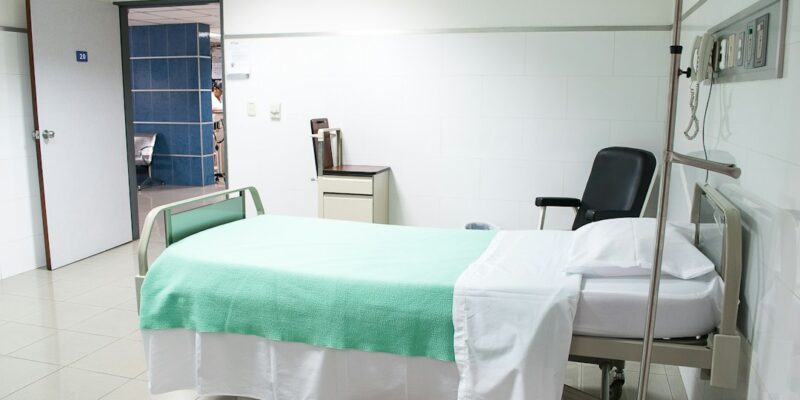
Building a Strong Foundation: The Importance of Preventive Health for Children
Preventive health for children is of utmost importance as it plays a crucial role in ensuring their overall well-being and development. By focusing on preventive measures, parents can help their children avoid potential health issues and promote a healthy lifestyle from an early age. In this blog post, we will explore the significance of preventive health for children, the benefits it offers, common preventive health measures, the role of parents in promoting preventive health, and its impact on child development and education.
Key Takeaways
- Preventive health for children is crucial for building a strong foundation for their future.
- Preventive health measures include regular check-ups, vaccinations, and healthy lifestyle habits.
- Parents play a vital role in promoting preventive health for their children.
- Preventive health can have a positive impact on child development and education.
- By prioritizing preventive health, we can ensure a healthier and happier future for our children.
What is Preventive Health and Why is it Important?
Preventive health refers to the measures taken to prevent the onset or progression of diseases and promote overall health and well-being. It involves regular check-ups, vaccinations, healthy diet and exercise, dental care, and other proactive steps to maintain good health. Preventive health is important because it not only helps in reducing healthcare costs but also improves overall health outcomes. By focusing on prevention rather than treatment, we can identify potential health issues early on and take necessary steps to address them before they become more serious.
The Benefits of Preventive Health for Children
a) Improved physical health: Preventive health measures such as regular check-ups and vaccinations help in identifying any potential health issues at an early stage. This allows for timely intervention and treatment, which can significantly improve a child’s physical health. By promoting healthy habits such as regular exercise and a balanced diet, parents can also help their children maintain a healthy weight, reduce the risk of obesity-related diseases, and develop strong immune systems.
b) Better mental health: Preventive health measures not only focus on physical well-being but also on mental well-being. Regular check-ups with healthcare professionals can help identify any signs of mental health issues such as anxiety or depression in children. Early intervention and appropriate support can then be provided to address these issues and promote better mental health outcomes.
c) Reduced risk of chronic diseases: Preventive health measures play a crucial role in reducing the risk of chronic diseases in children. By ensuring that children receive all recommended vaccinations, parents can protect them from serious illnesses such as measles, mumps, and polio. Additionally, promoting a healthy lifestyle through regular exercise and a balanced diet can help reduce the risk of chronic conditions such as diabetes and heart disease later in life.
Common Preventive Health Measures for Children
| Preventive Health Measure | Description | Recommended Age | Frequency |
|---|---|---|---|
| Vaccinations | Administering vaccines to protect against infectious diseases | Birth to 18 years | As per vaccination schedule |
| Regular Check-ups | Visiting a healthcare provider for routine physical exams and screenings | Birth to 18 years | At least once a year |
| Healthy Diet | Eating a balanced diet with fruits, vegetables, whole grains, and lean proteins | Birth to 18 years | Ongoing |
| Physical Activity | Engaging in regular physical activity to promote overall health and fitness | Birth to 18 years | At least 1 hour per day |
| Oral Health | Brushing teeth twice a day and visiting a dentist regularly | Birth to 18 years | At least twice a year |
| Sleep | Getting adequate sleep to support growth and development | Birth to 18 years | Varies by age |
a) Regular check-ups: Regular check-ups with healthcare professionals are essential for monitoring a child’s growth and development. These check-ups allow healthcare providers to identify any potential health issues early on and provide appropriate guidance and treatment. They also provide an opportunity for parents to discuss any concerns or questions they may have about their child’s health.
b) Vaccinations: Vaccinations are one of the most effective preventive health measures for children. They protect against serious diseases and help prevent the spread of infectious diseases within communities. It is important for parents to ensure that their children receive all recommended vaccinations according to the schedule provided by healthcare professionals.
c) Healthy diet and exercise: A healthy diet and regular exercise are key components of preventive health for children. Parents should encourage their children to eat a balanced diet that includes fruits, vegetables, whole grains, lean proteins, and low-fat dairy products. Regular physical activity should also be encouraged, whether it is through organized sports, outdoor play, or other forms of exercise.
d) Dental care: Good oral hygiene is an important aspect of preventive health for children. Parents should teach their children proper brushing and flossing techniques and ensure that they visit the dentist regularly for check-ups and cleanings. This helps prevent dental issues such as cavities and gum disease and promotes good oral health habits from an early age.
The Role of Parents in Promoting Preventive Health for Children
Parents play a crucial role in promoting preventive health for their children. They are the primary caregivers and decision-makers when it comes to their child’s health. It is important for parents to be actively involved in their child’s healthcare and take proactive steps to promote preventive health.
a) Importance of parental involvement: Parental involvement is essential for ensuring that children receive the necessary preventive health measures. This includes scheduling and attending regular check-ups, keeping track of vaccinations, promoting healthy habits at home, and seeking appropriate medical care when needed. Parents should also be proactive in educating themselves about preventive health measures and staying informed about any updates or changes in recommendations.
b) Tips for promoting preventive health at home: There are several ways parents can promote preventive health at home. This includes providing a healthy and balanced diet, encouraging regular exercise, ensuring proper hygiene practices, and creating a safe and nurturing environment for their children. Parents should also lead by example and demonstrate healthy habits themselves, as children are more likely to adopt these habits if they see their parents practicing them.
The Importance of Regular Check-Ups and Vaccinations
Regular check-ups and vaccinations are two of the most important preventive health measures for children. They play a crucial role in identifying potential health issues early on and protecting against serious diseases.
a) Benefits of regular check-ups and vaccinations: Regular check-ups with healthcare professionals allow for monitoring a child’s growth and development, as well as the early detection of any potential health issues. Vaccinations, on the other hand, protect against serious diseases and help prevent the spread of infectious diseases within communities. By ensuring that children receive all recommended vaccinations according to the schedule provided by healthcare professionals, parents can protect their children from potentially life-threatening illnesses.
b) Common vaccines recommended for children: There are several vaccines that are recommended for children to protect against various diseases. These include vaccines for diseases such as measles, mumps, rubella, polio, hepatitis B, diphtheria, tetanus, pertussis, and influenza. It is important for parents to consult with healthcare professionals to ensure that their children receive all necessary vaccinations according to the recommended schedule.
Preventive Health Strategies for Children with Special Needs
Preventive health is equally important for children with special needs. In fact, it may be even more crucial as they may be at a higher risk for certain health issues. Parents of children with special needs should take proactive steps to promote preventive health and ensure that their children receive the necessary care and support.
a) Importance of preventive health for children with special needs: Children with special needs may have unique healthcare needs and may be at a higher risk for certain health issues. Preventive health measures can help identify and address these issues early on, leading to better health outcomes. Regular check-ups, vaccinations, and other preventive measures should be prioritized for children with special needs.
b) Strategies for promoting preventive health for children with special needs: Parents of children with special needs can promote preventive health by ensuring regular check-ups with healthcare professionals who specialize in their child’s specific condition. They should also work closely with healthcare providers to develop a personalized preventive health plan that takes into account their child’s unique needs. Additionally, parents should educate themselves about their child’s condition and any potential health issues associated with it, and seek appropriate support and resources.
The Impact of Preventive Health on Child Development
Preventive health plays a crucial role in child development as it can have a significant impact on various aspects of a child’s growth and well-being.
a) How preventive health can impact child development: By promoting good physical and mental health, preventive health measures can support optimal child development. Regular check-ups and vaccinations help ensure that children are meeting important developmental milestones and are receiving appropriate support if any delays or issues are identified. Good physical health also contributes to better cognitive development, as children who are healthy are more likely to be able to focus, learn, and engage in educational activities.
b) Importance of early intervention: Early intervention is a key component of preventive health for children. By identifying and addressing potential health issues early on, parents and healthcare professionals can provide appropriate support and interventions to help children reach their full potential. Early intervention can make a significant difference in a child’s development and can help prevent or minimize the impact of any potential challenges or delays.
Preventive Health and Education: How Health Affects Learning
There is a strong connection between health and academic performance, highlighting the importance of preventive health in promoting academic success.
a) Connection between health and academic performance: Numerous studies have shown that children who are in good health are more likely to perform well academically. Good physical health allows children to have the energy, focus, and stamina needed for learning. Additionally, good mental health is essential for cognitive development, emotional well-being, and the ability to concentrate and engage in educational activities.
b) Importance of preventive health in promoting academic success: By promoting preventive health measures such as regular check-ups, vaccinations, healthy diet and exercise, and good mental health practices, parents can help set their children up for academic success. When children are healthy and well-supported, they are more likely to be able to fully participate in educational activities, engage with their peers, and reach their full potential academically.
Building a Strong Foundation for Children through Preventive Health
In conclusion, preventive health plays a crucial role in ensuring the overall well-being and development of children. By focusing on preventive measures such as regular check-ups, vaccinations, healthy diet and exercise, dental care, and promoting good mental health practices, parents can help their children avoid potential health issues and promote a healthy lifestyle from an early age. Preventive health not only reduces healthcare costs but also improves overall health outcomes. It is important for parents to prioritize preventive health for their children and take proactive steps to promote their well-being. By doing so, parents can help build a strong foundation for their children’s future health and success.
FAQs
What is preventive health for children?
Preventive health for children refers to the measures taken to prevent illnesses and diseases in children before they occur. It involves regular check-ups, vaccinations, healthy lifestyle habits, and early detection and treatment of any health issues.
Why is preventive health important for children?
Preventive health is important for children because it helps to keep them healthy and avoid illnesses and diseases. It also helps to identify any health issues early on, which can lead to better outcomes and easier treatment.
What are some examples of preventive health measures for children?
Examples of preventive health measures for children include regular check-ups with a pediatrician, vaccinations, healthy eating habits, regular exercise, good hygiene practices, and early detection and treatment of any health issues.
When should children start receiving preventive health measures?
Children should start receiving preventive health measures from birth. Regular check-ups with a pediatrician should begin within the first few weeks of life, and vaccinations should be given according to the recommended schedule.
What are some common childhood illnesses that can be prevented through preventive health measures?
Common childhood illnesses that can be prevented through preventive health measures include measles, mumps, rubella, chickenpox, whooping cough, and the flu. Good hygiene practices can also help prevent the spread of illnesses such as colds and stomach viruses.
What role do parents play in preventive health for children?
Parents play a crucial role in preventive health for children. They are responsible for ensuring that their children receive regular check-ups, vaccinations, and healthy lifestyle habits. They should also be aware of any signs of illness or health issues and seek medical attention when necessary.


















